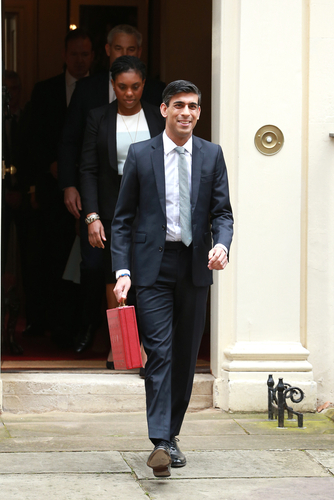Capital gains tax: What could the review mean?
In mid-July, Sunak announced a surprise review of capital gains tax (CGT), following a report by the Office for Budget Responsibility (OBR) that highlighted how the growing deficit in government spending was likely to exceed £350bn in 2020. The Chancellor asked the Office for Tax Simplification to report on how CGT rates compare with other taxes and how present rules may distort taxpayer behaviour.

There could be widespread tax rises as the government attempts to claw back the cost of extra spending during the coronavirus pandemic. The OBR said the Treasury was likely to suffer steep falls in capital gains tax receipts over the next two years as property and other assets fall in value. A tax rise could fill this gap.
What is CGT?
CGT is a tax on the profit when you sell something that has increased in value. You are only taxed on the amount it has gained in value. Most often it applies to gains made on property and shares, but may also apply to assets like art works. The OBR previously forecast that the tax would raise £9.1bn in the 2019/20 tax year, accounting for 1.1% of all tax paid in the UK.
Private homes are exempt from this tax, but you still need to pay it when selling a second home or investment property. You pay CGT when you sell something that has made gains of more than £12,300 for the current tax year. So a £10,000 investment profit would not incur CGT.
At the moment, the CGT levy is 18% on second homes and buy-to-let properties, and 10% on other assets. For higher rate taxpayers, these rates rise to 28% and 20% respectively.
Why is it being reviewed?
The Conservative Party vowed not to raise income tax, National Insurance or VAT in their last election manifesto, so there are few places left for Sunak to find desperately needed income.
There are also concerns that CGT is less than income tax, meaning that those who possess a large portfolio of assets are taxed at a rate that is lower than working people pay.
How could it change?
Essentially the Chancellor has three choices: reduce the allowance (for example, abolish the current £12,300 annual CGT allowance), levy it against other assets (such as classic cars), or raise the rates.
While it’s highly unlikely that Sunak will abolish the CGT exemption for primary residences, he could target second homes and buy-to-lets. It’s possible that the CGT rate could be aligned with other income tax rates, at 20%, 40% and 45%, meaning those with a property portfolio could be hit hard.
Other changes could include a reduction to Business Asset Disposal relief, which currently means that business owners and significant shareholders (over 5%) effectively pay a CGT rate of 10% on lifetime gains up to £1 million. Elsewhere, the treasury could overhaul the various mechanisms accountants use to defer CGT or offset gains, with losses made elsewhere.
Sources
https://www.theguardian.com/money/2020/jul/15/capital-gains-tax-review-your-questions-answered